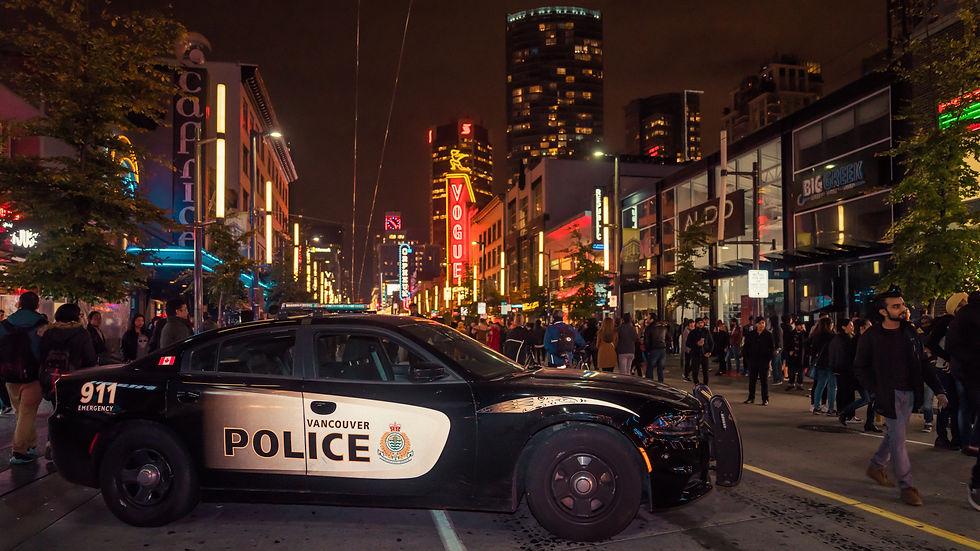Appearance before the Special Committee on Reforming the B.C. Police Act
- John de Haas

- Aug 4, 2021
- 3 min read
Updated: Oct 18, 2021

Source: Shutterstock
Monday July 26, 3:45 PM, via Zoom
Opening summary:
Thank you for inviting me.
In these opening five minutes, I will summarize my submission’s core ideas relating to the police and relating to the province.
Beginning first with the POLICE – I provided content on systemic racism and leadership, which are both issues that fit the expression - 'Not even knowing what you don’t know’.
Regarding racism - Police cannot imagine themselves as racist. Education is required to make police aware of what systemic racism is. The Kirk Johnson matter I submitted to you suggests a path forward.
Regarding leadership - Police do not know a culture of well-developed leadership. Substantive change has invariably come from government, courts, or public outcry. Policing needs to adapt, and I have submitted an example to you - the need for a new paradigm when police interact with the severely marginalized. Government needs to initiate a leadership culture that can deliver change.
Turning now to the PROVINCE – I provided content on police structure, governance and conduct review, which presently are all inappropriate models.
Regarding structure - Policing in this province is fractured into multiple independent historically-evolved agencies – a model that no longer meets policing needs. It is time to update police services into one cohesive provincial agency.
Regarding governance - Governance by a group of short-term appointed citizens, with no particular background in policing or of overseeing organizations is not an effective model. Also, it is time to let go of the illusion that policing is apart from government, as the province has always in one form or another exercised its mandate over policing. Policing would benefit from direct provincial governance, while still maintaining the independence of investigations.
Now, regarding conduct review
In British Columbia we continue to have exceptionally professional police services.
Nevertheless, the OPCC was created in the belief that an external oversight model would safeguard public confidence and silence critics.
However, we now realize that the OPCC as an exterior group,
has limited comprehension of policing and its realities,
has no vested interest in policing efficacy,
has no concern for police organizational integrity,
and also, does not represent the public interest.
At the same time, the OPCC and its staff naturally have self-interests. In the reality of low police misconduct, over the last several years the OPCC has appeared to pursue a public profile where they are seen as relevant and essential, and which validates their existence and cost.
It has done so by:
encroaching profoundly into labor matters
imposing itself into media reports involving on or off-duty officers
regularly releasing narratives of possible abuses by officers
and drawing out minor easily-resolved matters into major, protracted, accusatory, polarizing, litigious, punitive, and expensive affairs.
The OPCC’s narrative is of themselves being the guardian against not-to-be-trusted police officers, police agencies and police culture, with the repeated implicit message that there is chronic misconduct by the police and that police leaders are unwilling or incapable of addressing it.
Paradoxically, the OPCC’s actions and messaging surely erodes public confidence in the police.
Understandably, all of this is demoralizing to front line officers and destructive to the roles of supervisors and managers. Policing is obliged to be defensive, rather than being self-motivated towards excellence. As well, the OPCC’s agenda has unjustly hurt a lot of reputations and families.
The OPCC is a failed model.
What is needed now is a professional college - with ownership over standards and accountabilities – the same as for doctors, nurses, lawyers, dentists, teachers, and so many other professions. A college can also address the leadership development challenge mentioned earlier.
In closing
Moving forward, British Columbia needs substantive changes to policing:
so that;
police officers know what systemic racism is, and
policing possesses skilled and effective leadership,
and, where there is;
one unified police service,
effective and direct governance,
and, true professionalism.
Thank you
Followed by Q&A – posted at:


Comments